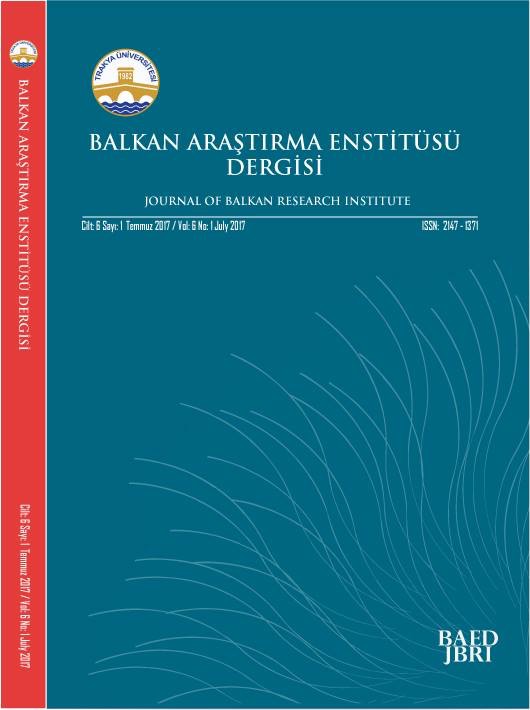HIRİSTİYAN DÜALİST-GNOSTİK BİR TARİKAT OLARAK BOGOMİLİZM ve AVRUPA HERETİK TOPLUMLARINA ETKİLERİ
BOGOMILISM AS A CHRISTIAN DUALIST-GNOSTIC ORDER AND ITS INFLUENCE IN EUROPE
Author(s): Halim IşıkSubject(s): Ethnohistory, Middle Ages, Other Christian Denominations, History of Religion
Published by: Trakya Üniversitesi Balkan Araştırma Enstitüsü
Keywords: Bogomil; Cathares; Albigensians; dualism; heretic; gnostic; Catholic; feudality;
Summary/Abstract: The name Bogomilism actually comes from a Bulgarian cleric Bogomil which also means “the one whom God loves”. In addition to its historical identity which denotes a heretical opposition, it is one of the Dualist-gnostic orders of the Medieval Christianity which played an active role in the Islamisation of the Balkans through the tolerance of the alperens, the bannerbearers of the Ottoman conquests against the oppressions of the Catholic Church and the feudalism of the time. Bogomilism became the subject of such a history in which it perpetuated a constant struggle due to its theological heretical character that is in conflict with the doctrines of the Main Church and the desires of the political authority. Moreover, Bogomilism made its own history in the Balkans by means of its community, apocryphal books, doctrines and especially its leader Bogomil in Bulgaria, Macedonia, Bosnia and Herzegovina, Dalmatia, Hungary, Croatia and Serbia. Then it pursued the same beliefs in European lands under another form in France and Italy. In this article, we will try to focus on the terms those reflect the nature of this order acting as its identity, the doctrinal roots which nurtures the order, the name of its leader, its conflicts with the social-feudal and the church authorities of the time, and its influences on the movements which are considered to be the continuation of Bogomils after their decadence in France under the name Albigeois and in Italy under the name Cathares. Despite the scarcity of the literature concerning Bogomilism in our country, our main goal is to contribute to an awareness concerning this gnostic order coming from the ancient times under the light of the Western sources those constitute a vast body. As a matter of fact, this order is worth being evaluated with various aspects, and thus, the article focuses on this order whose identity impressed a significant mark in the history the semantic shifts within the etymological analyses formed only by the name of its founder Bogomil, its firm attitude that never makes a concession concerning the doctrines and the principles, its spread, the location and the charecteristics of the geography from which it emerged as well as its decadence.
Journal: Balkan Araştırma Enstitüsü Dergisi -Trakya Üniversitesi
- Issue Year: 6/2017
- Issue No: 1
- Page Range: 109-187
- Page Count: 79
- Language: Turkish

